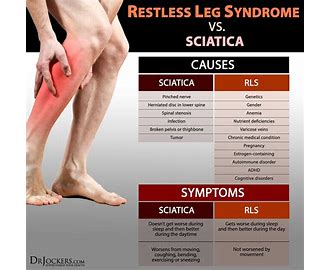What is RLS ?
22
Restless Leg Syndrome
this unpleasant feeling usually in fines, feet happens, but can be anywhere in the lower limb of the ankle taken up the thighs, feel. This feeling usually when that occurs, the patient long takes, or for a long time to arrive. The individual who suffered this mode can be inevitably your feet moving. Move the legs, walking, rubbing or massaging the legs or bend the knees temporarily to some extent the symptoms will reduce and lack of mobility, and relax, cause aggravating symptoms of the disease. These patients usually go to sleep are in trouble, and usually the best sleep at the end of the night and the morning experience. Because these people get enough sleep have never experienced may be sleepy during the day.
sometimes disease, restless leg, along with the movements of the alternating organs during sleep, Periodic Limp Movements in sleep can be seen. Of these patients, for the disposal of sudden movements to the limbs of your mother. These movements, typically every 10 to 60 seconds to occur. Some people hundreds of times during the night, your organs move. These movements not only cause sleep disorder and these people can be, but also caused a sleep disorder, those around them also.
between 5 to 15 percent of the people of the United States, restless legs syndrome are affected. The prevalence of this disorder increases with age.] Restless legs syndrome is more common among women is common. A survey conducted in this regard showed that restless legs syndrome factor a third disorder insomnia in people over 60 years. Children can be restless legs syndrome caught that this phenomenon, in many cases, with hyperactivity or "pain of growth" can be confused.
